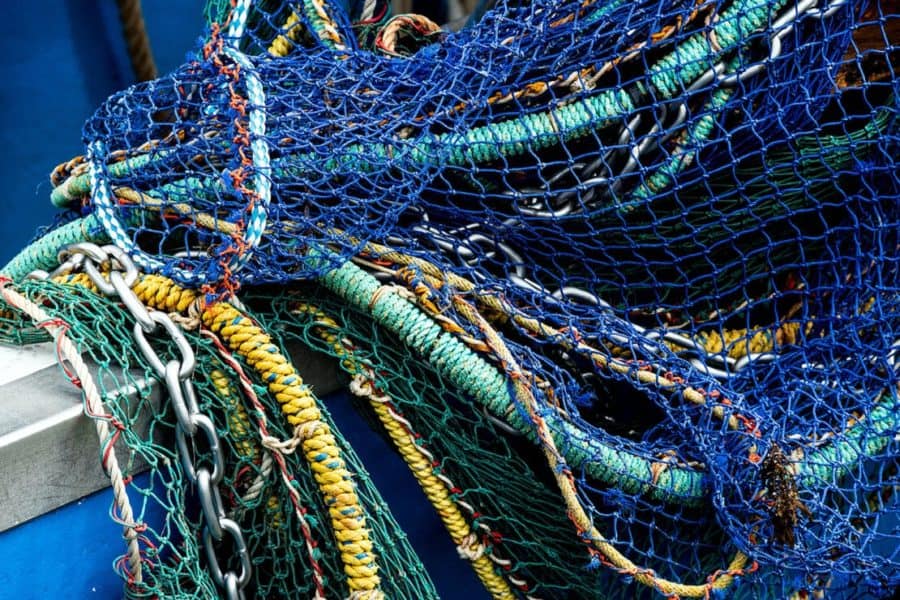One-third of all fish stocks are overexploited, yet governments around the world provide $22 billion a year in subsidies that incentivize vessels to travel farther and catch fish faster, contributing to the destruction of marine ecosystems and threatening the food security and livelihoods of coastal communities.
Below, Stanford experts discuss how specific policy approaches can help manage wild fisheries to support thriving ocean ecosystems that benefit people and the planet. Colette Wabnitz is the lead scientist at the Stanford Center for Ocean Solutions (COS). Alfredo Girón-Nava is an André Hoffmann Fellow at COS and the World Economic Forum Centre for the Fourth Industrial Revolution. They are among nearly 500 scientists from around the globe who signed a letter in Science last year calling on members of the World Trade Organization (WTO) to ban harmful fishing subsidies.
How do harmful subsidies threaten marine ecosystems and the communities that depend on them?
Wabnitz: Research has shown that subsidies support the continued exploitation of overfished stocks. According to the latest report on the State of World Fisheries and Aquaculture, 34% of assessed fish stocks worldwide are overfished. Such stocks, in particular, should benefit from reduced fishing, amongst other measures, to aid their recovery. Instead, subsidies allow fleets to continue fishing when it would otherwise be economically unfeasible to do so. Subsidies undermine the marine resources upon which so many depend and compromise future social, economic, ecological and cultural benefits.
Girón-Nava: Harmful subsidies enable unsustainable fishing practices that compromise the longevity of fish stocks. Coupled with the overcapacity of fishing fleets, poor access to markets and the unequal distribution of wealth, this can drive additional problems that threaten the economic, social and cultural benefits to fishing. It is important to recognize, though, that harmful subsidies are not the only driver of these problems, and other issues, such as illegal, unregulated and unreported fishing, as well as social conflict, can lead to similar outcomes.
How do harmful fisheries subsidies impact small-scale fishers in particular?
Wabnitz: A handful of industrialized nations account for the vast majority of global fisheries subsidies, meaning their fleets are given an unfair advantage in accessing marine resources. This impacts many small-scale fishers whose livelihoods and cultural identity are often tied to fishing, and who cannot compete with subsidized rivals. Recent research shows that over 80% of the $35.4 billion of global fisheries subsidies provided in 2018 went to large-scale, industrial fishing fleets, with only 19% being spent on small-scale fisheries, including artisanal and subsistence fisheries. Eliminating subsidies from well-equipped fleets in industrialized states would be an important step towards uplifting coastal communities and leveling the playing field for small-scale fisheries.
How can we manage wild fisheries more sustainably?
Girón-Nava: There is a lot of work to be done to develop new ways to manage fish stocks around the world, particularly in developing countries. While this may seem more like a data and scientific challenge, there is also a policy challenge related to unlocking the resources needed to fund research and create better monitoring and management systems. Imagine if the resources currently invested in subsidies could be redirected towards strengthening fisheries management or supporting local communities to implement sustainable and economically viable fishing practices.
If the World Trade Organization (WTO) succeeds in prohibiting harmful fishing subsidies, what might be important next steps for researchers?
Wabnitz: I think one key consideration when discussing a ban of harmful fisheries subsidies is the possible ramifications for labor abuse in fisheries. Fishing vessels that engage in the practice of forced labor and other exploitative labor conditions have an unfair cost advantage compared to fleets that compensate workers equitably and support the well-being of fishers. Since fuel and labor are the two biggest costs for fishing fleets, one unintended consequence of a subsidy ban could be lower wages and an increase in forced labor across fisheries in efforts to reduce overhead. Strengthening initiatives that identify and act to eliminate labor abuse will be critical for sustainably managing fisheries into the future.
What actions can be taken to address illegal, unregulated and unreported fishing?
Wabnitz: One important action is to identify factors that increase the risk of illegal, unregulated and unreported (IUU) fishing and labor abuse in the fisheries sector. At the Stanford Center for Ocean Solutions (COS), we work with the Stockholm Resilience Centre and Lancaster University to inform leading seafood companies on their commitments to reduce labor abuses and remove IUU fishing from their supply chains. The project has two key elements. First, we are developing a novel mapping approach that combines on-the-ground knowledge with vessel data, such as vessel characteristics and movement, to highlight where sourcing seafood in fisheries supply chains is at higher risk for labor abuse and IUU fishing at port, at sea and during the transfer of fish, as well as crew or supplies, from one vessel to another. Second, we work with these leading seafood companies through a dialogue process to understand their risks and identify potential pathways to mitigate them.


